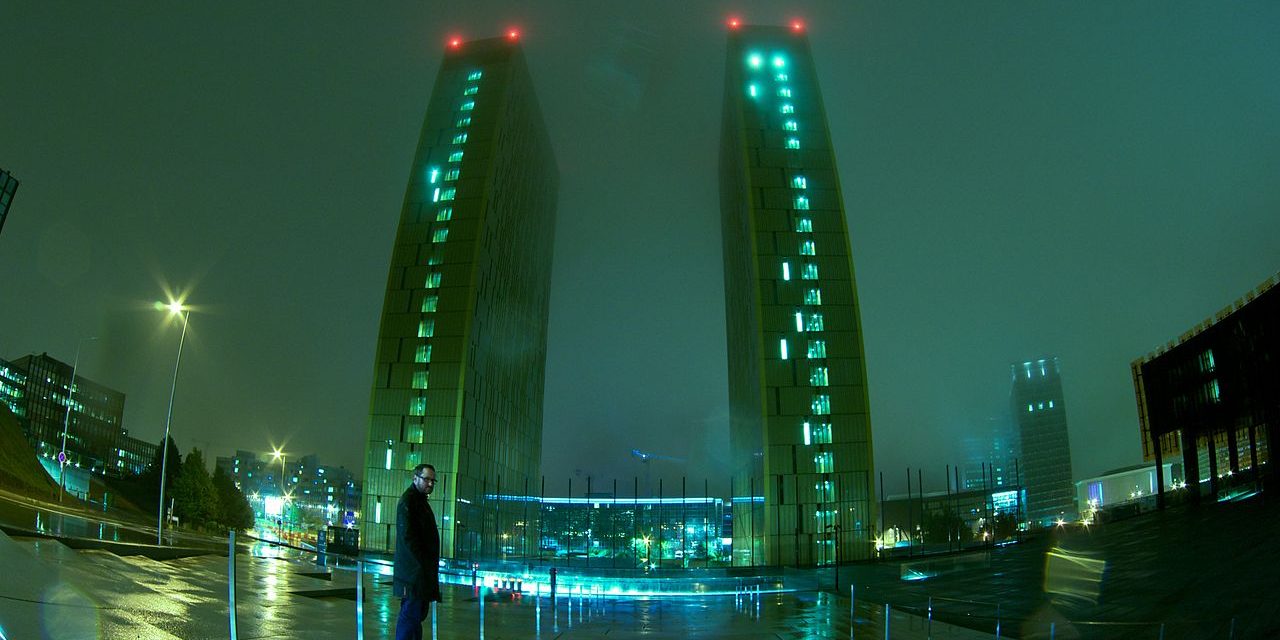In the UK, the ECJ had been called a foreign court in the Brexit debate. However, the term comes from Switzerland. The notion of a foreign court was used to refer to an international court that includes judges from other states. However, this notion is fallacious, argues Carl Baudenbacher (LSE). The decisive factor is whether a court is neutral. If a state belongs to an international organisation, the international court in question is neutral towards that state. This applies to the ICJ, for example, regardless of whether a state provides a judge or not. The ECJ, on the other hand, is not neutral for post-Brexit Britain and for Switzerland; it is the court of the other party and thus not impartial.
One of the bones of contention in the Brexit negotiations was the question of whether the ECJ should still play a role after the UK left the EU. The Brexiteers had promised to end the EU Court’s jurisdiction. They have kept this promise as far as the Trade and Cooperation Agreement (TCA) is concerned. Disputes arising from that treaty will be decided by a three-member arbitration tribunal. The Withdrawal Agreement (WA), on the other hand, contains the so-called “Ukraine Mechanism”. According to Article 171 WA, a five-member “arbitration tribunal” is pro forma competent to decide on conflicts between the EU and the UK. However, where EU law or treaty law that is identical in substance is concerned, the “arbitration tribunal” must request a binding ruling from the ECJ, i.e. the court of the other side.
The European Commission had proposed the Ukraine clause at the beginning of 2018 to Switzerland, which has been negotiating an institutional framework agreement with Brussels since 2014. After the Federal Council – Switzerland’s government – agreed in March 2018, the Ukraine Mechanism was also presented to the British. PM Theresa May accepted it in July 2018 as part of the “Chequers Plan”. Her successor, Boris Johnson, did not oppose the inclusion of the Ukraine Mechanism in the WA. He did, however, successfully reject a corresponding clause for the TCA. The EU had pushed for it and its March 2020 Draft TCA included the Ukraine model.

Critics of the Ukraine Mechanism said that with the UK leaving the EU, the ECJ had become a “wholly foreign court”. This implies that the ECJ was already a “foreign court” during the UK’s membership insofar as it had 27 non-UK judges in addition to the UK judge. Such a view is not limited to the UK. Marc Bossuyt, the President of the Belgian Constitutional Court, noted in 2011 that the European Court of Human Rights and the ECJ often do not understand the Belgian rules at all because they are composed of “foreign judges” (buitenlandse rechters).
Historically, of course, the aversion to foreign judges originates from Switzerland. Before Switzerland acceded to the European Convention on Human Rights (“ECHR”) in 1974 and before the vote on accession to the European Economic Area in 1992, the respective antagonists argued that the European Court of Human Rights (“ECtHR”) and the (planned) EFTA Court were “foreign” courts because they (would) include non-Swiss judges. Reference was made to the 1291 Federal Charter (“Bundesbrief”) of the three Founding Cantons, which contains the obligation to recognize only local judges. Zurich legal historian Clausdieter Schott, however, has clarified that the function of modern judges is not comparable to that of their medieval counterparts. While today’s judges pass judgment, the medieval judge was excluded from the decision-making process. Only the college of jurors (“Schöffen”) was authorized to rule. The judge’s task, on the other hand, was to conduct the proceedings. Since the Schöffen were always members of the same “thing cooperative” as the parties, a foreign judge could never be an issue. Schott also notes that the passage in question in the Bundesbrief was disregarded for centuries and only rediscovered in modern times for political purposes. The aphorism is also in no way specifically Swiss. It merely expressed the plaintiff’s obligation to sue at the defendant’s domicile. In other words, it described the development of a general rule of jurisdiction that exists still today. Invocation of the 1291 Bundesbrief’s foreign judge formula in connection with the ECtHR and the EFTA Court is, thus, a historical misrepresentation.
In the UK, the ECJ was called a foreign court in the course of the Brexit negotiations. However, the term comes from Switzerland. The notion of “foreign court” was used to refer to an international court that includes judges from other states. This notion is fallacious. The decisive factor is whether a court is neutral. If a state belongs to an international organisation, the international court in question is neutral towards that state. This applies to the ICJ, for example, regardless of whether a state provides a judge or not. The ECJ, on the other hand, is not neutral for Post Brexit Britain and for Switzerland; it is the court of the other party and thus not impartial.
The Swiss Federal Council has always defended Switzerland’s membership in the ECHR and its subordination to the ECtHR’s authority. It is all the more regrettable that former Foreign Minister Didier Burkhalter, in his efforts to prevent Switzerland from “docking” with the EFTA Court, claimed in 2013 that the EFTA Court would be a “foreign” court even if a Swiss judge were to sit on it because it also includes judges from the (closely connected!) other EFTA States of Iceland, Liechtenstein, and Norway. This remark, which ties in with the campaigns of 1974 and 1992, is one of the numerous stories from that time that can only be classified as “bullshit” in the sense of American moral philosopher Harry G. Frankfurt’s definition: “Speech intended to persuade without regard to truth.”
How far Switzerland has come with such escapades can be seen today: The Federal Council has at the political level accepted the Ukraine Mechanism under the planned Framework Agreement. As stated, the decisive role here falls to the ECJ – the court of the other side. The court of one party by definition lacks neutrality. Thus, regardless of its historical achievements and worldwide reputation, the ECJ lacks impartiality towards countries that do not pose a judge. This is not an accusation, but a fact that is increasingly recognized both by the Swiss public as well as informed observers in the EU.
As noted above, the UK has been able to avoid such a solution in the TCA. However, the TCA is in many ways a work in progress and negotiations continue. It may be recalled that the Brussels Bruegel Think Tank proposed in August 2016 to create a Continental Partnership with the EU on one side and the free-trading non-EU states UK, Norway, Iceland, Liechtenstein, and Switzerland on the other. This second structure would have its own court with judges from the five states. Its archetype is the EFTA Court. It would be a neutral court for the five states and their citizens and businesses. By concluding the TCA, the EU and the UK have avoided a gau at the end of 2020. The UK has thus left the single market. But that must not be the end of the story. (Partial) membership in the single market – while retaining the newly won freedoms on foreign policy and foreign trade – could be a compromise solution that both the former Brexiteers and the former Remainers could live with.
Not everyone is happy that the UK has left the single market. One way back could be through membership in a second politico-economic structure in Europe. To do this, the UK would have to join forces with the free-trade-minded states of the EEA/EFTA (Norway, Iceland, Liechtenstein, and maybe Switzerland). Such second structure would most likely have its own court.
This post represents the views of the author(s) and not those of the Brexit blog, nor of the LSE.







UK left the EU. No longer subject to the ECJ except according to its own legislation including WA or TCA. Uk’s gvt has chosen to give partial reference to ECJ, so be it.
If they want to totally disregard ECJ they always have the possibility to tear those two agreements and bear the consequences.
What is forgotten by the British is all the cases won by UK.
What is also forgotten is why on earth the ECJ would invalidate its legal stance just to get a point over UK which could perfectly disregard their judgment or appeal to arbiters?
UK chose frequently not to follow international courts, see judgements applying to prisoners. Was it so hard?